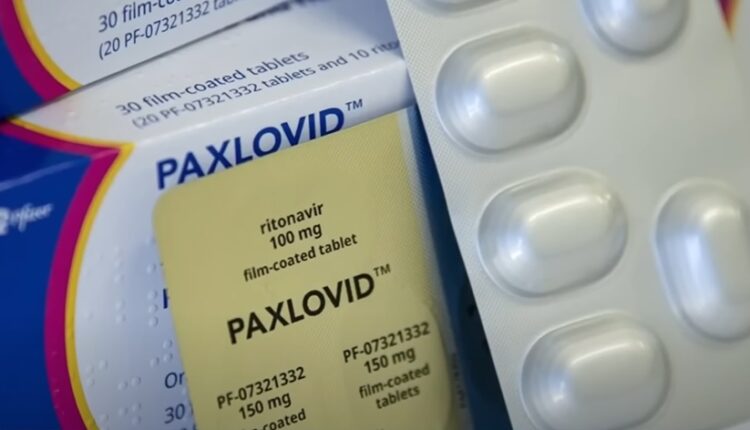
Efficacy Of Pfizer’s Paxlovid COVID Drug Crashes, According To NIH-Funded Study
A new National Institutes of Health (NIH) funded study sheds new light on the waning effectiveness of Pfizer’s Paxlovid to prevent patient hospitalizations due to COVID. The drug—the most prescribed FDA-approved oral COVID medication in the United States—has seen its efficacy rate drop in half, according to the report. The findings may validate the concerns of some researchers that predict Paxlovid’s efficacy could decrease over time, given its reliance on antiviral mode-of-action.
The study was lead by Dr. Scott Dryden-Peterson, an infectious disease specialist with Brigham and Women’s Hospital in Boston. The population-based cohort study measured patients from a large healthcare system providing care for 1.5 million patients in Massachusetts and New Hampshire during the Omicron wave, from January 1 to May 15, 2022. Doctors maintained staged access and capacity to prescribe nirmatrelvir plus ritonavir (Paxlovid), and 30,322 non-hospitalized adults with a 87.2% vaccination rate, over age 49 with COVID-19 and without medication contraindications participated. A full 6036 patients—or 19.9% of the study—were prescribed Paxlovid while 24,286 (80.1%) patients were not.
Adjusting for limitations arising from differential access and uptake of COVID-19 vaccines, diagnostics, and treatment, the study found the overall risk of hospitalization was 45% lower among patients prescribed Pfizer’s Paxlovid. While still significant, the efficacy rate provided in the NIH-funded study is appreciably lower than the 89% reduction in hospitalizations indicated in Paxlovid’s high-risk clinical trial, which took place during the Delta wave.
Final data available from all patients enrolled in the 2021 Phase 2/3 EPIC-HR (Evaluation of Protease Inhibition for COVID-19 in High-Risk Patients) trial confirmed prior results of interim analysis showing Paxlovid reduced risk of hospitalization or death by 89% within three days of symptom onset and 88% within five days of symptom onset. Furthermore, this data measured hospitalization within a 28-day window of those receiving a COVID-19 diagnosis, as opposed to 14 days in the NIH-funded study.
Although not an apples-to-apples comparison, the results put Pfizer’s Paxlovid drug at a similar relative effectiveness as Tamiflu to prevent influenza hospitalizations, according to Dr. Scott Dryden-Peterson. Influenza and SARS-CoV-2 viruses both consist of RNA viruses, although they differ in regards to the protein layer that encapsulates the RNA.
We obviously would have loved to see that it was as protective as was seen in the trial, the 90% reduction rather than the 45% reduction. But we see a very similar reduction to that which has been observed with influenza and Tamiflu in the past.
Source: U.S. News
While the NIH-funded study appears to show Pfizer’s Paxlovid losing efficacy, such outcomes have long been predicted for the drug which relies on antiviral mode-of-action to administer effect.
As an inherent survival mechanism, viruses will naturally attempt to utilize their proteins to antagonize the host innate immune system by either targeting viral sensors or blocking downstream antiviral signaling molecules. This produces diminishing returns for antiviral medications as the virus evolves, which is why effective medications that eradicate coranavirus and influenza-type viruses have been difficult to develop.
Update (7:03pm EST, June 28):
NIAID Director Anthony Fauci experiences rebound COVID after taking a course of Paxlovid.
Update #2 (10:16pm EST, June 28): The exchange where Dr. Fauci acknowledges the first course of Paxlovid failed.



